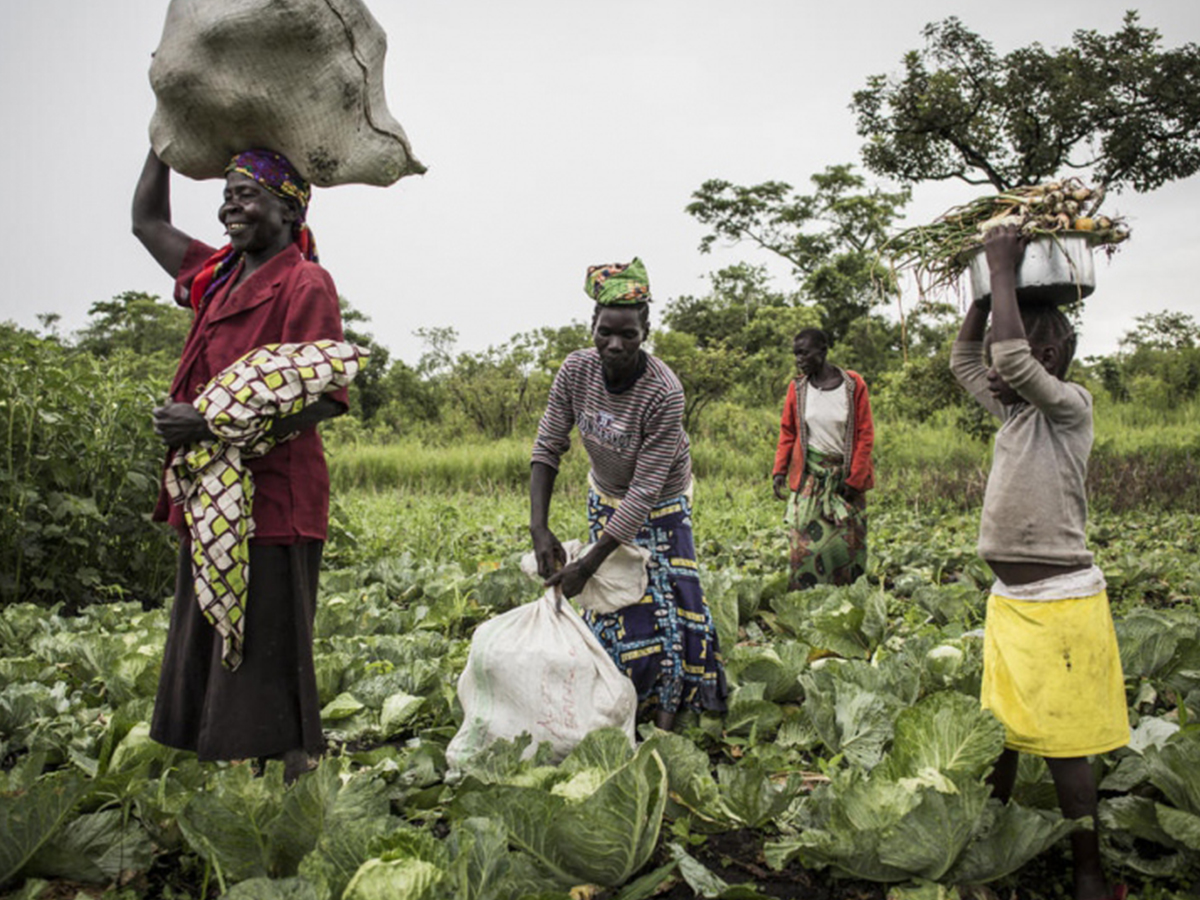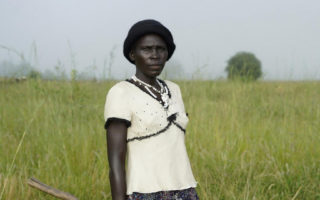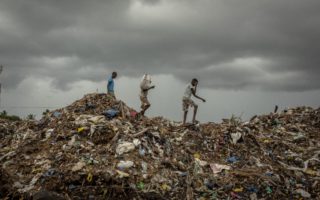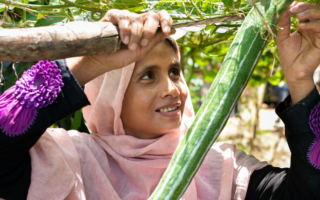
South Sudanese farmers who are part of a cooperative of refugees and hosts get ready to head home after a morning of harvesting at Biringi settlement. © UNHCR/John Wessels
An agriculture initiative in the Democratic Republic of the Congo is helping South Sudanese refugees and locals alike become self-reliant.
When Neema Amoya first arrived in the Democratic Republic of the Congo, she struggled to make ends meet. Alone with her five children, she fled South Sudan’s conflict in 2017, for safety in Biringi settlement, in northern Congo’s Ituri province.
“When I arrived, it was hard to survive, especially with the children. Sometimes there wasn’t enough food,” says Neema who relied solely on a monthly cash handout of US$13 from UNHCR, the UN Refugee Agency, and its sister agency, the World Food Programme.
But today, in a small market in Biringi, Neema can enjoy the fruits of her labour, made possible through a farming initiative she joined in February 2017. The UNHCR-supported project has brought together refugees and Congolese, who till the land together, growing eggplants, spinach, onions, tomatoes and cabbage. The group harvests the fresh produce and sells it at the local market, sharing the profits amongst themselves.
“This project has allowed us to become independent.”
Neema used to farm back home in South Sudan and is happy to get back to it.
“This project has allowed us to become independent,” she says. “We earn some money, which means we can survive without relying on handouts.”
Through the programme, she and her fellow farmers have received agricultural tools, quality seeds and learnt specialized techniques for growing vegetables.
“More importantly, refugees have access to safe, nutritious food and a way to earn a living and better their lives and future,” says Marc Barhonyi, a UNHCR field assistant based in Aru.
Barhonyi adds that the initiative, which has been welcomed by local authorities, is also enhancing relations between refugees and the local community.
Guillaume Mageu, a local chief, was the first community leader in Biringi to offer land to refugees when the settlement was opened in 2016. The gesture has served as a crucial example for other local leaders to follow.
“I am happy to see refugees cultivate our land to earn a living and to put food on the table,” says Guillaume. “So when I come here and see the harvest has been so good, it brings me joy because a refugee should not suffer in this country that hosts them.”
To date, over 100 hectares have been cultivated with successful results – nearly 300 families involved in farming activities in Biringi harvested more than seven tonnes of vegetables in the first half of the year.
“If additional funding is available, a lot more land can be put to good use.”
However, limited funding means that some 2,300 hectares of farmland available for refugees and their Congolese counterparts remain underutilized.
“If additional funding is available, a lot more land can be put to good use,” says UNHCR’s Barhonyi, adding that so far, only 20 per cent of South Sudanese refugee families have benefited from such income generating activities. About 100,000 South Sudanese refugees are hosted in DR Congo, many of whom live in areas that have been ravaged by years of conflict and food insecurity.
The initiative is part of UNHCR’s strategy to empower South Sudanese refugees in DR Congo, through direct financial support and by maintaining peaceful coexistence in the settlements where refugees live alongside Congolese.
Initiatives like the farming project that bring refugees and their host communities together are part of a wider approach to address displacement and enhance the socioeconomic inclusion and self-reliance of refugees. Their involvement in local commerce and how this benefits the host communities will be among the areas of focus at the Global Refugee Forum, a high-level meeting that will be held in Geneva in December.
States, the private sector and other stakeholders will announce high-impact contributions that will give refugees like Neema a chance to use and further develop their skills and contribute to economic growth in their host communities.
“Since I started working in the fields, I live very well. Now I can buy things like salt, spices and soap,” says Neema as she arranges her vegetables at the market. “It is important because it means I can complete my family duties. I am very thankful for this opportunity.”
Originally published on UNHCR on 26 November 2019





